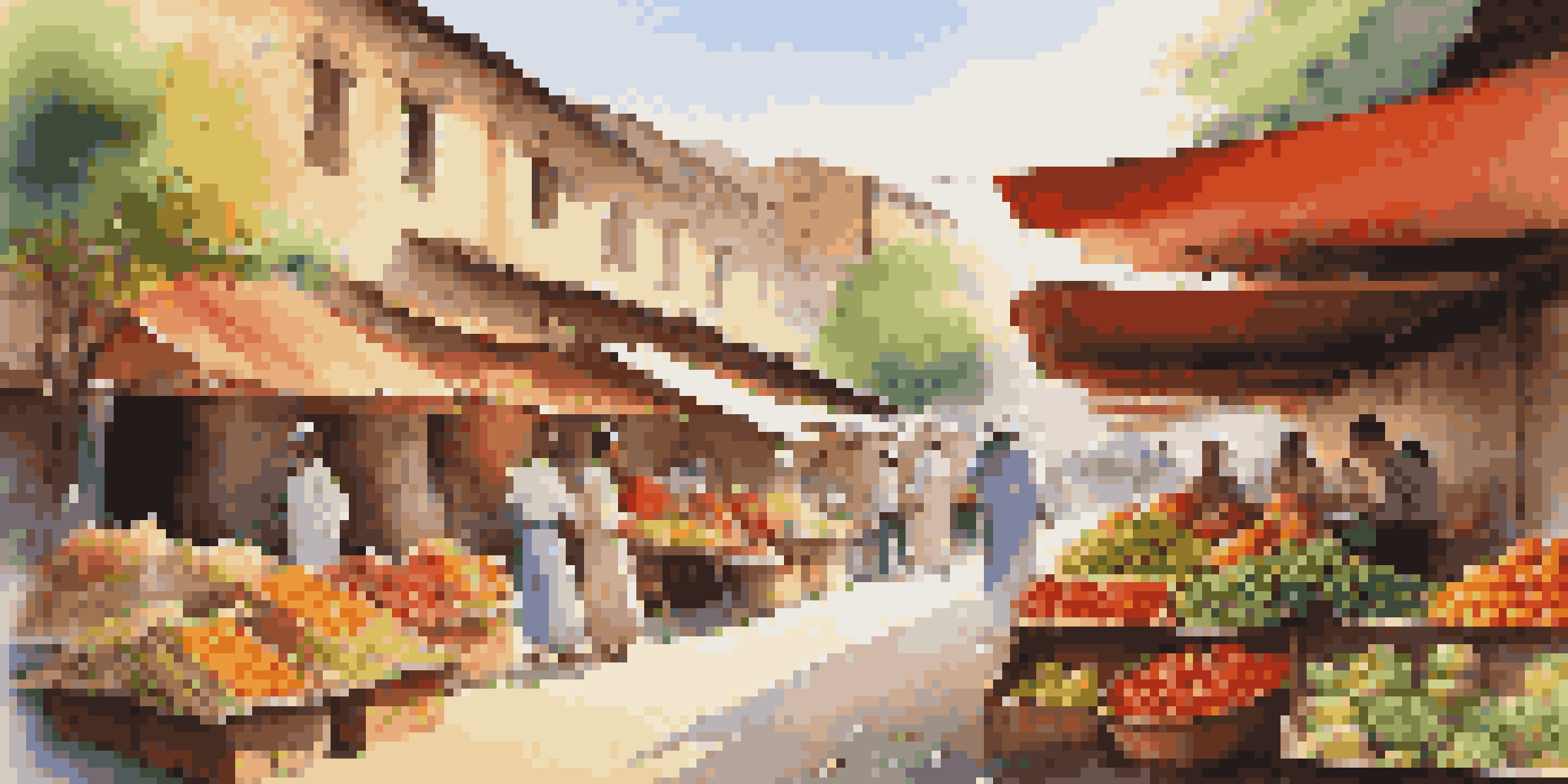Travel Etiquette: Dos and Don'ts for Holiday Travelers

Respect Local Customs and Traditions
When traveling, it's crucial to familiarize yourself with the local customs and traditions of your destination. This not only shows respect but also enhances your travel experience. For instance, in some cultures, it's customary to greet locals with a handshake or a bow, while in others, personal space is highly valued.
Travel is fatal to prejudice, bigotry, and narrow-mindedness.
Observing local dress codes is another important aspect of respecting customs. In many countries, modest clothing is expected, especially when visiting religious sites. By dressing appropriately, you demonstrate cultural awareness and can often avoid uncomfortable situations.
Lastly, try to learn a few basic phrases in the local language. A simple 'thank you' or 'hello' can go a long way in building rapport with locals and showing that you care about their culture.
Be Mindful of Noise Levels
It's easy to get caught up in the excitement of your travels, but being mindful of noise levels is key to maintaining harmony, especially in shared spaces. Whether you're on a train, in a hotel, or at a restaurant, keeping your voice down shows consideration for others around you.

Consider using headphones when listening to music or watching videos in public spaces. This simple action can prevent disturbing fellow travelers, allowing everyone to enjoy their surroundings more peacefully. Remember, not everyone shares your taste in music!
Respect Local Customs
Familiarizing yourself with local traditions and customs enhances your travel experience and shows respect for the culture.
Lastly, be aware of your surroundings and the context. In places of worship or quiet zones, silence is often golden. Adapting to the atmosphere can enhance your travel experience and make it more enjoyable for everyone involved.
Practice Good Hygiene and Cleanliness
Good hygiene is essential, especially when traveling. Before you board a plane or enter public transport, make sure to wash your hands or use hand sanitizer. This not only keeps you healthy but also shows respect for fellow travelers.
Respect for ourselves guides our morals; respect for others guides our manners.
In shared accommodations, like hostels or hotels, cleanliness becomes even more crucial. Always clean up after yourself in common areas, such as kitchens and bathrooms. Leaving a tidy space reflects your consideration for others, making the environment pleasant for everyone.
Lastly, pack travel-sized toiletries that fit easily in your bag. Items like wet wipes or travel sanitizers can be lifesavers on long journeys, helping you stay fresh and comfortable without inconveniencing others.
Be Punctual and Respect Schedules
Punctuality is a sign of respect, especially in cultures that value time. Whether it's a guided tour, dinner reservation, or a meeting with friends, make an effort to be on time. Arriving late can be seen as inconsiderate, and it may disrupt the plans of others.
If you're running late, a quick message can go a long way. Informing your companions allows them to adjust their schedules and shows that you value their time. It's a small gesture that can prevent frustration and misunderstandings.
Maintain Cleanliness
Practicing good hygiene and cleanliness in shared spaces reflects consideration for fellow travelers and contributes to a pleasant environment.
Lastly, remember that not all cultures operate on the same clock. While some places may have a more relaxed approach to time, others are strictly punctual. Being aware of these differences can help you navigate social situations smoothly.
Mind Your Personal Space
Personal space varies greatly between cultures, so it's important to be aware of these differences while traveling. In some places, standing close during conversations is common, while in others, it may feel intrusive. Observing the behavior of locals can provide valuable cues.
When in crowded areas, such as markets or public transit, try to be mindful of your positioning. Avoid pushing or jostling others, as this can be perceived as rude. Instead, wait patiently for your turn, maintaining a respectful distance.
Lastly, when interacting with locals, pay attention to their body language. If someone seems uncomfortable with close proximity, take a step back. Respecting personal space fosters positive interactions and enhances your travel experience.
Be Cautious with Photography
While capturing memories through photography is a key part of travel, being respectful about when and where to take photos is equally important. Always ask for permission before photographing people, particularly in cultures where this is considered intrusive.
In places of worship or sacred sites, check for any signs or guidelines regarding photography. Some locations may have restrictions, and ignoring these can be seen as disrespectful. It's always better to err on the side of caution.
Be Punctual and Considerate
Being on time and respecting schedules demonstrates consideration for others and helps navigate cultural differences regarding time.
Lastly, try to capture the essence of a destination without being disruptive. Avoid blocking pathways or drawing attention away from the experience of others. Thoughtful photography can enhance your adventures while respecting the environment and those around you.
Show Gratitude and Appreciation
Traveling often comes with the help of locals, whether it's a guide, a hotel staff member, or even a stranger providing directions. A simple 'thank you' can make a world of difference and shows your appreciation for their efforts. Gratitude fosters a positive atmosphere and encourages kindness.
Consider leaving a small tip for service workers in restaurants or hotels, especially if they go above and beyond. In many cultures, tipping is a way to show appreciation for good service. Just be sure to check local customs regarding tipping, as practices can vary widely.

Lastly, take the time to express your appreciation for the experiences you have. Whether it's writing a positive review or telling someone about your visit, sharing your gratitude can contribute positively to the local community and encourage others to continue providing excellent service.